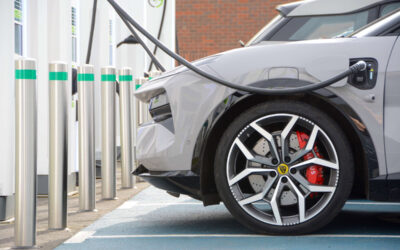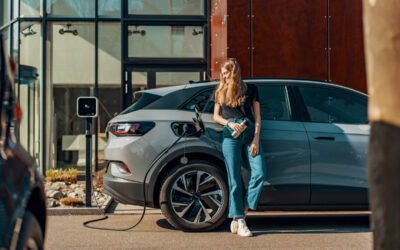Calls for further subsidies and ev charger grants to boost new BEV retail sales may sound like the answer to a lack of retail sales of electric cars, but we disagree with this approach.
The market mechanisms currently in place appear to be working effectively, primarily driven by the Zero Emission Vehicle (ZEV) mandate, which is proving successful in incentivising both manufacturers and consumers to shift toward battery-powered vehicles.
In September 2024, BEV sales in the UK surged by 24.4%, highlighting a strong shift largely attributable to the ZEV mandate. This regulation encourages manufacturers to produce a higher percentage of zero-emission vehicles, resulting in a broader range of Battery Electric Vehicle (BEV) options for consumers.
The UK is also outperforming much of the EU in EV adoption, especially in fleet purchases. The Benefit-in-Kind (BIK) tax regime for company cars has further facilitated this transition, allowing businesses to absorb the initial depreciation costs associated with new BEVs. Consequently, this has led to an influx of lower-cost, used electric vehicles entering the market.
The growth of the used BEV sector is particularly encouraging. With a typical 6:1 ratio of used-to-new car sales, the increased availability of second-hand electric cars provides affordable options for retail buyers who might otherwise be priced out of the new car market. This trend directly results from companies adopting new BEVs, which helps create a sustainable supply of gently used vehicles appealing to private buyers.
Running cost savings for BEV users represent another significant advantage. Those who can charge at home save approximately 7x the cost of fuelling a petrol vehicle, while maintenance expenses for BEVs are over 30% lower than those for internal combustion engine (ICE) vehicles. These financial benefits become even more pronounced as the vehicle ages, making BEVs an increasingly attractive choice for long-term ownership.
Despite SMMT’s calls for more retail incentives like ev charger grants, market forces influenced by the ZEV mandate seem to be lowering prices organically. In September, established legacy automakers reported average discounts of 12.1% to clear inventory, while new entrants from China, such as BYD and Ora, are offering competitively priced electric vehicles, enhancing affordability without needing government intervention.
Charging infrastructure is also experiencing significant improvements, increasing the feasibility of BEV ownership for a broader audience. Companies like Char.gy and Connected Kerb are deploying affordable on-street AC charging solutions for those without off-street parking, while innovators like ChargeGuru are facilitating easier access for residents of multi-family dwellings.
Group smart charging and energy buying initiatives are set to further reduce charging costs, bringing public charging prices closer to those enjoyed by homeowners with dedicated charging stations.
Interestingly, while brands focused heavily on ICE, such as Land Rover, experienced strong sales growth, BEV-centric brands like MG reported a decline in sales. This situation may reflect market saturation or shifting buyer preferences, underscoring the complex dynamics as the automotive sector transitions toward electric mobility.
Are ev charger grants the answer?
In conclusion, while the SMMT advocates for ev charger grants and retail subsidies, the current market trajectory—largely driven by the ZEV mandate—suggests that such incentives may be unnecessary. The used BEV market is growing rapidly, providing more affordable options for private buyers, while company car purchases continue to be a crucial driver of BEV adoption.
Instead of additional grants, we advocate for a reduction or elimination of VAT on used EVs and public charging electricity to stimulate the market where more average-income retail customers can benefit. With falling prices, improved infrastructure, and a growing used market, the future of BEV sales in the UK looks bright—thanks to the effective implementation of the ZEV mandate rather than the need for further ev charger grants and subsidies.




